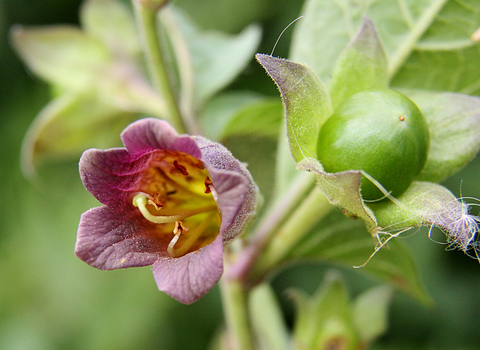
©Don Macauley
Deadly nightshade
As its name suggests, Deadly nightshade is a highly poisonous plant. Its black, shiny berries may be tempting but fatal. Found on chalky and disturbed ground, such as scrub or verges, it has bell-shaped flowers.
Scientific name
Atropa belladonnaWhen to see
June to OctoberSpecies information
Category
Statistics
Height: up to 1mCommon.
